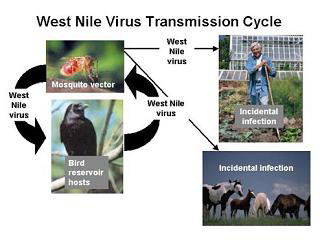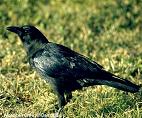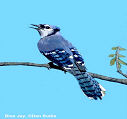The West Nile Virus (WNV) infects certain wild birds. When WNV infected mosquitoes bite a bird, the bird serves as a host for the virus. More mosquitoes become infected when they feed on infected birds. Infected mosquitoes can transmit WNV to humans.

Infected crows and blue jays are known to get sick and die from WNV, so they are early indicators of WNV presence in an area. Surveillance and testing of these birds is a tool utilized to check for WNV activity in the environment. When WNV has been identified in an area, prevention and control measures are implemented to minimize the spread of the virus.
In previous years, WNV has been indentified throughout Knox County. That's why Knox County Health Department monitors dead crows and blue jays as a means for early detection of the virus in an area. Residents who find a recently deceased crow or blue jay on their property can call the Knox County Health Department at 865-215-5200 to report the dead bird. Callers will be asked a series of questions to help determine if the bird is acceptable for testing.
Make sure the dead bird fits these criteria:
- KCHD will not accept birds unless they have been dead for less than 24 hours.
- Decomposed carcasses can't be accepted. The presence of maggots or a strong odor indicates decomposition is occurring.
- Only blue jays and crows are accepted to testing. See the pictures below for examples of these types of birds.
- The bird must be intact. If the bird is missing body parts, it is not suitable for testing and should be discarded.


Birds from left to right:
American crow: Tip of bill to tip of tail is 15 -17 inches.
Blue jay: Tip of bill to tip of tail is 9-11 inches.
Safety tips for handling dead birds:
- Wear gloves while handling the carcass (as is prudent for handling any dead wild animal). If gloves aren't available, a plastic bag can be placed over the hand, then pick up the bird and pull the bag inside-out over the carcass.
- Double-bag the carcass in a resealable clear storage bag or other clear plastic bag so the bird can be seen through the bag.
- Keep the carcass in a disposable cooler (styrofoam) or utility refrigerator and keep it out of the sun. Keeping the bird cool will slow tissue decomposition.
- Knox County Health Department will need the following information when the carcass is submitted for testing:
- Name and phone of the person submitting the bird
- Location of where bird was found: street address, city, county, zip code
- Type of bird and date it was found



Click here to leave a comment or concern.